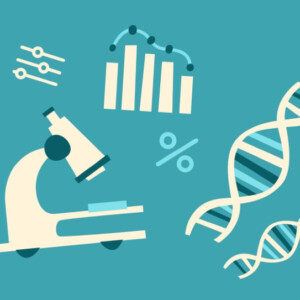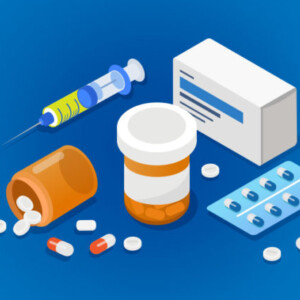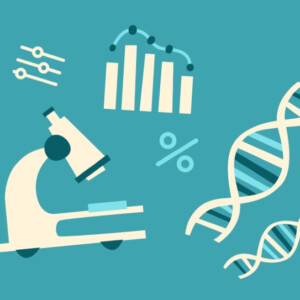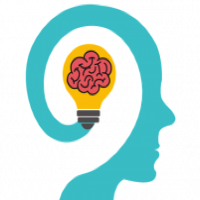

National Institute of Health Clinical Center, MD
Deborah Merke, M.D.
Safety, Pharmocokinetics and Pharmacodynamics of NBI-77860 in Adolescent Females with Congenital Adrenal Hyperplasia
2015 – present
Adolescent volunteers with classic CAH, ages 12-18, needed for clinical trial of the investigational compound NBI-77860. Neurocrine Biosciences, Inc. is conducting an open-label, single-dose clinical trial to assess the effect of NBI-77860 on safety measures and hormone levels in adolescent patients with classic, 21-hydroxylase deficiency, congenital adrenal hyperplasia (CAH). This study will be conducted in approximately 15 adolescent females with CAH. Three independent dosing groups of NBI-77860 (approximately 5 patients per group) will be evaluated following single-dose administration of the study drug.

University of North Carolina, Chapel Hill, NC
Louise Fleming, R.N.
Parental Management of Adrenal Crisis in Children with Congenital Adrenal Hyperplasia (CAH)
2015 – present
This pilot study explores parental management of adrenal crisis in children with CAH by describing parents’ perceptions of the sources of information from health care providers related to times of crisis and examine strategies and approaches parents take to educate family members, school personnel, and others in their social network on managing adrenal crisis in their children.

New York Presbyterian Hospital – Weill Cornell Medical Center, NY
Dix Poppas, M.D.
Surgical Outcomes for Children with Non-typical Genital Formation
2015 – present
This multi-site study will incorporate parents’ ratings of surgical results along with their ratings of their own psychological outcomes and their satisfaction or regret with medical decisions in order to evaluate outcomes of modern genitoplasty.

Diurnal, Cardiff, United Kingdom
Infracort®
2015 – present
For young Congenital Adrenal Hyperplasia patients, especially neonates and infants. Current hydrocortisone replacement therapy poses significant challenges especially at low doses of hydrocortisone where no licensed therapies exist for this age group. The first patient has been enrolled in Europe onto a Phase 3 registration trial of its pediatric product, Infracort®. Infracort® is an immediate-release, oral formulation of hydrocortisone which has been designed specifically for children. Infracort® is presented as taste-masked granules (or sprinkle) and allows flexible low dosing to children in units of 0.5mg, 1mg, 2mg and 5mg of hydrocortisone. evaluate outcomes of modern genitoplasty.

University of Bucharest
Simona-Alexandra Geacar
Survival vs. Reproduction in Late Onset Congenital Adrenal Hyperplasia
2014 – present
This study is to understand compliance to treatment among late onset congenital adrenal hyperplasia patients by establishing factors predicting compliance. To identify contexts in which people are more prone to quitting treatment and thus help prevent possible health risks, based on evolutionary theory.

Children’s Hospital Los Angeles – Mimi Kim, M.D. & Weill Cornell Medical Center NY Presbyterian Hospital –Maria Vogiatzi, M.D. and Oksana Lekarev, D.O.
Effects of Metformin on Insulin Resistance and Androgen Levels in Adolescent and Adult Females with CAH
2014 – present
This study is to evaluate the efficacy of metformin in reducing insulin levels and improving adrenal androgen control in a prospective, short-term, clinical trial of CAH patients with insulin resistance. To assess the safety of metformin in this new treatment cohort and its overall efficacy as an adjunctive therapy in female CAH patients who exhibit insulin resistance.

Alliant International University, CA
Jennie Hosey, M.A.
Self-Harming Behaviors in Individuals with CAH & Other Disorders
2013 – present
This study is to increase awareness about potential prevalence of self-harming behaviors in individuals with CAH and other disorders to aid in the improvement of treatment and standards of care for professionals working with the population.

National Institute of Health Clinical Center, MD
Deborah Merke, M.D.
A Pilot Study Assessing the Use of Continuous Subcutaneous Hydrocortisone Infusion as Treatment of Congenital Adrenal Hyperplasia
2013 – present
Adults who have congenital adrenal hyperplasia, a disorder of the adrenal glands, may be eligible to take part in a study at the National Institutes of Health on the effectiveness of a new pump which delivers missing adrenal hormones in a manner more closely matching their release by the adrenal glands.

Weill Cornell Medical College/New York Presbyterian Hospital, NY
Oksana Lekarev, D.O.
Perioperative Stress Dosing of Steroids in Children with Congenital Adrenal Hyperplasia
2012 – present
The aim of this study is to evaluate glucocorticoid needs of children with congenital adrenal hyperplasia during and after surgery as compared to children without congenital adrenal hyperplasia who are undergoing a surgical procedure. The goal of the study is to help us better understand perioperative steroid stress dose requirements of children with CAH.

Mount Sinai School of Medicine, NY
Maria New, M.D.
Non-invasive Prenatal Diagnosis of Congenital Adrenal Hyperplasia
2012 – present
This study will help determine in early pregnancy whether or not your baby is a boy or a girl and whether he or she has CAH, just by testing the pregnant woman’s blood. Women with CAH or with a family member with CAH thinking of becoming pregnant.

Cedars Sinai Medical Center, CA
Ricardo Azziz, .M.D.
The Relationship between age of diagnosis and response of the HPO axis to glucocorticoid suppression in non-classic Congenital Adrenal Hyperplasia
2008 – present
This study’s aim is to determine the stress-fighting ability in patients with non-classical CAH (NCAH) and compare those responses to patients with classical CAH and to those in carriers of either disorder. SEE CEDARS SINAI MEDICAL CENTER, CA, 2008.

Pennsylvania State University, PA
Sheri Berenbaum, Ph.D.
Experiences of Women with Congenital Adrenal Hyperplasia
2008 – present
This study explores women’s attitudes towards CAH, their physical and emotional health, and assesses the care they have received. The goal of the survey is to get a better sense of the needs, both physical and emotional, of those affected, so that we are better able to focus on the best possible quality of life for those with CAH.

National Institutes of Health Clinical Center, MD
Deborah Merke, M.D.
CAH Natural History Study *
2005 – present
In October 2005, the NIH Clinical Center obtained final approval to begin a Natural History Study of patients with CAH. This protocol is designed to study hormone-mediated and disease-specific characterizations and comprehensive data will be collected on growth and development during childhood, the development of metabolic abnormalities (i.e. insulin resistance), the cause and natural history of obesity (common in CAH), the psychological impact of multiple hormone imbalances, and the genetics of CAH. SEE NATIONAL INSTITUTE OF HEALTH CLINICAL CENTER, MD 2005.

University of North Carolina Dept. of Pediatrics, NC
Karen Loechner, M.D., Ph.D.
CAH: Calcium Channels as Therapeutic Targets*
2004 – present
CAH is the most common childhood adrenal disorder and is secondary to molecular enzyme defects that leads to cortisol deficiency and, therefore, life-long glucocorticoid (GC) requirement. The dosing of GCs needed to control CAH is often above what is normally made by the body. The research focuses on two main areas in CAH: (1) Are children with CAH at risk for osteoporosis? and (2) Can the use of amlodipine (a medication typically used for high blood pressure) to decrease ACTH levels (the pituitary hormone that drives the adrenals to make excess androgens) permit a lower GC requirements in children with CAH?
These questions are being addressed in two clinical trials. The first trial is currently enrolling (goal is 30 children with CAH and 30 siblings over the course of 3 years) and will measure bone mineral density as well as screen for vertebral fractures since these the spine can be affected before more obvious fractures may occur. The study will then examine if there is any relationship between the type of mutation causing the CAH with these bone health markers. The second clinical trial involves adding amlodipine to block ACTH release over the course of 6-12 months while measuring the effect on height, bone age and GC dosing in children with CAH. This study has completed enrollment and the results are now being analyzed. The preliminary results hold promise that we may have a potential new adjunctive therapeutic agent for children with non salt-wasting CAH.
Funds from CARES contributed to completion of the amlodipine trial and has permitted the first children to enter the osteoporosis screening study. Two publications have been submitted that will discuss interpretation of bone density in children with CAH as well as report a child with CAH who does have osteoporosis and vertebral compression fractures that are related in time to a period of GC excessive dosing. The amlodipine trial report is expected to be submitted in Spring 2009.


University of Michigan, MI
Richard Auchus, M.D.
Abiraterone Acetate in Adult Women with Congenital Adrenal Hyperplasia
2012 – 2014
Abiraterone acetate has been approved by the Food and Drug Administration (FDA) for use in men with metastatic prostrate cancer. It is currently sold as Zytiga. It is also being studied in several other illnesses. One of these illnesses is congenital adrenal hyperplasia (CAH). People with CAH make too many male hormones (androgens). This causes male characteristics to appear early or inappropiately. Abiraterone acetate is not FDA approved for the treatment of CAH. The purpose of this study was to determine the best dose orf abiraterone acetate needed to decrease androgen levels in adult women with CAH. The best dose identified will be used to determine the starting dose in another study in children with CAH.

Weill Cornell Medical College/New York Presbyterian Hospital, NY
Mabel Yau, M.D.
Quality of Life Study
2012 – 2013
This study examined what aspects of a child’s life (ages 8-25) are affected by CAH. Chronic conditions such as cancer and diabetes are known to negatively impact a child’s life. However, there is little data on the psychological aspects that may be affected in children with CAH. With the results of this study, we hoped to identify potential areas of concern that providers may need to address more closely.

National Institute of Health Clinical Center, MD
Deborah Merke, M.D.
Phase 1 Chronocort Study
2012 – 2013
Sixteen adults with classic CAH participated in this 6 month study. SEE NATIONAL INSTITUTE OF HEALTH CLINICAL CENTER, MD, 2012.

Pennsylvania State University, PA
Sheri Berenbaum, Ph.D.
Tweens to Teens (T2T) Project
2010 – 2013
The goal was to learn about the development of characteristics related to being a girl (gender development). The study included girls with classical or nonclassical CAH (ages 10 to 13 years old) and looked at their behavior and feelings.

Children’s Hospital of Los Angeles, CA
Mitchell Geffner, M.D.
Evaluation of the Hypothalamic-Pituitary-Adrenal (HPA) Axis and Adrenomedullary Function under Stress in Subjects with Non-Classical Adrenal Hyperplasia*
2003 – 2008
This study’s aim was to determine the stress-fighting ability in patients with NCAH compared to those with CAH, and to those in carriers of either disorder. The study hoped to learn how those affected can best manage stressful situations like infection and trauma. SEE CHILDREN’S HOSPITAL OF LOS ANGELES, CA – 2003.

Pennsylvania State University, PA
Sheri Berenbaum, Ph.D.
Psychological Function in Congenital Adrenal Hyperplasia*
2002 -2005
This was a multi-year behavioral study of individuals with CAH. SEE PENNSYLVANIA STATE UNIVERSITY, PA STUDY, 2002.

Johns Hopkins University Hospital, MD
Claude Migeon, M.D.
CAH Research Fund in Pediatric Endocrinology
2003 – 2004

NY Presbyterian Hospital, NY
Maria New, M.D.
Pediatric Endocrine Research Fund
2001 – 2004
CONTACT
2414 Morris Avenue, Ste 110
Union, NJ 07083
Phone: (908) 364-0272
Toll Free: (866) 227-3737
Fax: (908) 686-2019
contact@caresfoundation.org


